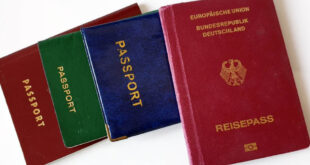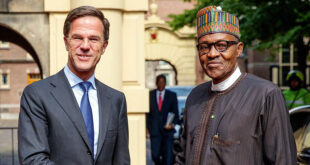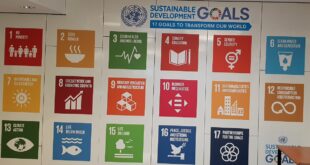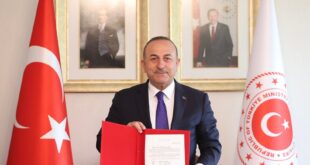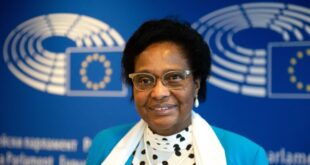Chancellor Angela Merkel’s conservative CDU has won a decisive victory over its Social Democrat rivals in an election in Germany’s northern state of Schleswig-Holstein on Sunday.
The CDU won with 33 per cent of the vote compared to the SPD’s 26 per cent, down from 30 per cent.
The result is a boost for Merkel, who is seeking a fourth term in office, ahead of September’s general election.
The SPD’s governing coalition with the Greens and SSW, which has led the state since 2012, lost its majority.
“Today is a great day for the friends in Schleswig-Holstein, for Daniel Günther and the entire CDU,” said Chancellor Merkel, reacting to her party’s victory, in Berlin. Her challenger, SPD’s candidate, Martin Schulz, expressed his disappointment, saying “This is an event that upsets us deeply. We all expected a better result.”
The Green party made slight gains on its 2012 results, receiving about 13.5 percent of the vote, and the free market libertarian FDP jumped 3.3 per cent in the polls to reach 11.5 per cent.
The anti-immigrant Alternative for Germany (AfD) will enter the state parliament for the first time. The populist party garnered 5.5 percent of the vote, clearing the 5 percent hurdle needed to enter a German legislature.
Although receiving just 3.5 percent of the vote, former junior coalition partners the SSW – a party representing the interests of Danish and Frisian minorities in the state – will keep some seats, as it is not subject to the same hurdle as other parties.
Like at the national level, neither the SPD nor the CDU achieved an absolute majority in the regional election following Sunday’s vote.
However CDU will lead a governing coalition, a further blow to the Social Democrats’ confidence, one week ahead of yet a far bigger state election in their stronghold of North Rhine-Westphalia, also Germany’s most populous state.
The CDU lost a string of state elections over the past two years as voters punished Merkel for her liberal refugee policy that allowed more than one million asylum seekers into Germany since 2015.
But with the pace of new arrivals sharply slowing, surveys show the conservatives gaining ground.
Kwame Appiah
 THE AFRICAN COURIER. Reporting Africa and its Diaspora! The African Courier is an international magazine published in Germany to report on Africa and the Diaspora African experience. The first issue of the bimonthly magazine appeared on the newsstands on 15 February 1998. The African Courier is a communication forum for European-African political, economic and cultural exchanges, and a voice for Africa in Europe.
THE AFRICAN COURIER. Reporting Africa and its Diaspora! The African Courier is an international magazine published in Germany to report on Africa and the Diaspora African experience. The first issue of the bimonthly magazine appeared on the newsstands on 15 February 1998. The African Courier is a communication forum for European-African political, economic and cultural exchanges, and a voice for Africa in Europe.










